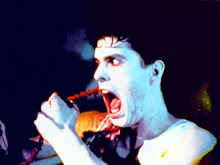
Directed by: Peter Bogdanovich
Written by: Peter Bogdanovich + W.D. Richter
Starring: Ryan O'Neal, Burt Reynolds, Tatum O'Neal, Brian Keith, Stella Stevens, John Ritter, Jane Hitchcock, Jack Perkins
This homage to the childhood days of the motion pictures starts in 1910, when the young attorney Leo Harrigan (Ryan O'Neal) by chance meets a motion picture producer. Immediately he's invited to become a writer for him - the start of a sensational career. Soon he's promoted to a director and shoots one silent movie after the other in the tiny desert village of Cacamonga with a small crew of actors. But the competition is hard: the patent agency sends out Buck Greenway (Burt Reynolds) to sabotage them. When they visit L.A., his crew is surprised by a new species: fans!
This movie has many problems. The biggest one being it's running time. At over two hours, it's just way too long for a comedy, especially one that aspires to recreate the screwball humor of the olden days. The second problem is the confusing tone. One moment it's a love story, the next it's a slapstick comedy, then it's a history of early filmmaking, then it's a melodrama, then back to comedy. Repeat that for over two hours and things get pretty tiresome. Because of the constant jerking of the tone, none of the leads make much of an impression with their characters.

The slapstick comedy that worked so well in director Bogdanovich's hilarious 'What's Up Doc?' falls flat on it's face here. If Bogdanovich hadn't used such a heavy-handed slapstick, there might have emerged a fond tribute to the pioneering days of silent films in the early part of the 20th Century. But instead, he has filled the movie with a whole series of non-stop sight gags that become tiresome and repetitious, even more so because none of the characters involved really come to life. As the pretty heroine of the piece, Jane Hitchcock has very limited abilities beyond staring wide-eyed into the camera lens. Burt Reynolds at least does derive several good chuckles from his comedy efforts as a reluctant participant in the troupe of silent film actors. Younger and elder O'Neal are not too bad, but Ryan is never as funny as he was in 'What's Up Doc?' and Tatum, whose performance in 'Paper Moon' is still the best child performance ever on film, isn't very memorable here.
Technically, the film is handsomely produced and pleasing to look at in color, but it plods along without the benefit of a tight script or a really compelling story and suffers, mainly, from the heavy-handed approach to comedy.

Final Verdict: Skip It
















